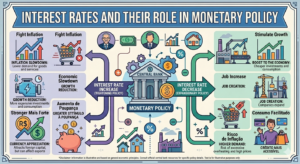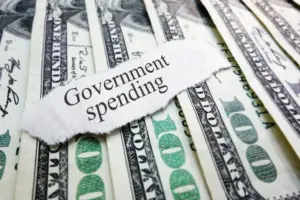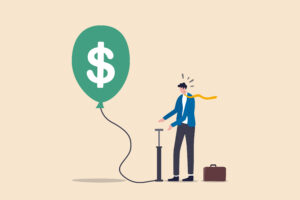In an era of instant gratification and easy credit access, the humble credit card often gets a bad rap. Frequently painted as a financial villain leading consumers down a path of debt, it’s easy to overlook its profound utility. Yet, when wielded with prudence and strategy, a credit card transforms from a potential liability into a powerful financial tool. Moving beyond the obvious perks like rewards and cash back, there are several significant, often hidden, benefits to using a credit card wisely that can profoundly impact your long-term financial health and security.
The Cornerstone: Building a Robust Credit Score
The most critical and often misunderstood benefit is the role a credit card plays in establishing a strong credit history and, subsequently, a high credit score. This three-digit number, calculated by credit bureaus, is your financial passport. It dictates not just whether you can borrow money, but how much it will cost you.
Credit Score Components and Credit Card Use
A credit score is based on several key factors, and responsible credit card use positively influences nearly all of them:
- Payment History (35%): Paying your credit card bill on time, every time, is the single most important action. Perfect payment history demonstrates reliability to lenders.
- Amounts Owed / Credit Utilization Ratio (30%): This is the ratio of your total credit card balances to your total credit limits. Keeping this ratio low (ideally below 10% and definitely under 30%) shows you are not overly reliant on credit. Wisely using a small portion of your available credit and paying it off is the best way to manage this.
- Length of Credit History (15%): The older your credit card accounts, the better. Keeping old accounts open, even if not actively used, boosts this factor.
- New Credit (10%): Opening too many credit cards in a short period can hurt your score. A thoughtful, gradual approach is best.
- Credit Mix (10%): Having a mix of different credit types (like a credit card and a mortgage or auto loan) is viewed favorably.
A high credit score, built on a foundation of responsible credit card use, translates directly into lower interest rates on major purchases like homes and cars, saving you tens of thousands of dollars over time. This is arguably the most significant “hidden” financial advantage.
A Safety Net: Superior Consumer Protection
Credit cards offer a level of consumer protection and security that debit cards and cash simply cannot match, providing a crucial buffer against fraud and financial risk.
Shield Against Fraud and Theft
When your credit card number is stolen and used fraudulently, you are generally protected by federal laws (specifically, the Fair Credit Billing Act in the US).
- Zero Liability Policies: Most major card issuers have zero liability policies, meaning you are not responsible for unauthorized charges. The card company investigates the fraud, and the money never leaves your bank account.
- Debit Card Risk: Conversely, if a debit card is compromised, the fraudulent charges come directly out of your checking account, potentially depleting your savings and requiring you to wait days or weeks for your bank to return the funds. By using a credit card for everyday transactions, you are essentially using the bank’s money, not your own, as the first line of defense.
Built-in Purchase and Warranty Benefits
Many credit cards offer extended warranty protection and purchase protection on items bought with the card:
- Extended Warranty: This automatically adds up to a year or more to the manufacturer’s warranty, saving you the cost of purchasing a separate protection plan.
- Return Protection: If a store won’t accept a return, your credit card company might refund you the purchase price.
- Dispute Resolution: If a merchant fails to deliver a product or service as promised, the credit card issuer can intervene on your behalf through the chargeback process, effectively reversing the transaction. This level of mediation is a powerful, hidden feature of the card network.
Leveraging the Perks: Travel and Lifestyle Efficiency
Beyond the immediate cash back, a strategically chosen credit card can dramatically enhance your travel and lifestyle, offering access to services and savings that are otherwise unavailable.
Travel Insurance and Car Rental Coverage
You don’t need a separate travel insurance policy for every trip. Premium credit cards often include comprehensive, complimentary travel benefits:
- Car Rental Insurance (Primary or Secondary Coverage): Using your credit card to book a rental car can waive the need to purchase the expensive collision damage waiver (CDW) offered by the rental agency, resulting in immediate savings.
- Trip Cancellation/Interruption Insurance: If your trip is delayed or canceled due to covered reasons (like severe weather or illness), the card can reimburse non-refundable expenses.
- Baggage Delay/Loss Coverage: Compensation for essential items purchased while your bags are delayed.
Financial Flexibility and Emergency Fund Supplement
A credit card can serve as a critical short-term bridge or an essential emergency backstop. For unexpected, non-negotiable emergencies (e.g., a sudden car repair or medical bill), a credit card offers immediate liquidity without having to liquidate savings or investments.
- Interest-Free Loan: If you pay your balance in full by the due date, you’ve essentially received an interest-free loan for the month, allowing your funds to remain in an interest-bearing savings account for a little longer.
- Booking Convenience: Certain transactions, like booking rental cars, hotels, or overseas travel, are significantly easier and often require a credit card for the initial hold.
💡 The Key: Prudent and Wise Usage
All these hidden benefits hinge on one crucial rule: Never charge more than you can afford to pay off in full when the statement arrives. Carrying a balance negates all benefits, as the interest charges will quickly overwhelm any rewards or cash back earned.
The Wise Credit Card User’s Mantra:
- Pay in Full: Always pay your statement balance, not just the minimum payment.
- Stay Low: Keep your Credit Utilization Ratio below 10%.
- Treat it Like Cash: Budget and track your credit card spending as if you were using money directly from your checking account.
By adhering to this discipline, a credit card is no longer a debt instrument; it becomes a sophisticated tool for maximizing credit potential, securing consumer protection, and optimizing financial flexibility. Its true power lies not in its ability to let you spend, but in its ability to silently and steadily build a foundation for a prosperous financial future.
Next Step
Would you like to explore some of the specific best practices for maintaining a low credit utilization ratio, or perhaps look into credit cards that offer the best extended warranty and purchase protection benefits?







